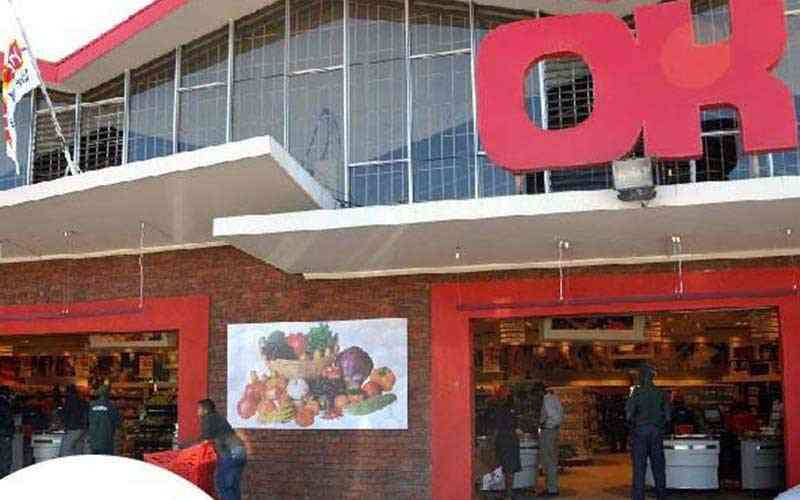
RETAIL giant OK Zimbabwe (OK Zim) suffered a 7,7% decline in sales volumes in the year ended March 31, 2023, owing to high operating costs and low consumer demand.
Company chief finance officer Phillimon Mushosho said there was some recovery in the decline showing the dedication by management to protect the balance sheet.
“As you recall, for the prior half year our volumes declined by 8,3% over last year. At the end of the financial year, we declined by 7,7%,” he told at an analyst briefing yesterday.
“You can see that there is some recovery in the second half of the year, but we also grew positively in the context of where volumes were declining and this is a testament to how our management managed to protect our balance sheet.
“In an environment like this, it is very easy to lose stock if you are not on the bone in terms of repricing and making sure that you are selling your stock at costs that you are able to replace when you need to buy the next stock.”
Mushosho said operating income also declined by 6,6% due to pressure on volumes and operating costs.
“And then we go to the operating income, our operating income grew by 155% over last year in historical terms but in hyperinflationary terms, we declined by 6,6%. We can see where the turnover grows by 327% and you expect your profitability to grow by that level or even higher because you would have covered your fixed costs.
“This is exactly a result of what we explained about the operating environment. It has been a very tough environment for businesses because, while there was pressure on volumes, there was also an increase in the cost of doing business,” he said.
- OK Zim registers 8% drop in sales volumes
Keep Reading
“So in terms of what caused this decline, firstly it was the margin. Our margins came off slightly and this is really a function of how we procure stock in this market if you are buying stock in Zimdollars.
“Most suppliers generally because they would want to cover themselves would anticipate and forward cost for us when we get that stock we would not ordinarily get the normal margin otherwise the products would be out of the reach of the market and one of the things that caused the volume decline is that disposable incomes kept sinking.”
OK Zim was also affected by councils’ and power utility Zesa Holdings’ foreign currency tariffs that were uniformly applied to all businesses.
“During this year, you realise that we saw Zesa and the municipal councils moving to US dollar tariffs. This was an issue that was widely debated in the economy. Initially, it was meant for companies that were exporting and were able to raise foreign currency but it was blanketly applied to businesses like ours where we do not even import and we do not collect significant foreign currency revenues from our customers.”
There were also significant increases in the amounts that were being charged compared to product prices.
“With all those high costs and increases, the power was erratic and what we ended up doing was to use a lot of diesel to power our stores. We spent an enormous amount of money just to keep our doors open. This is what we mean when we talk about the cost of doing business,” he said.
Wage pressure also weighed heavily on company operations. “We saw Nec (national employment council) coming back and declaring how much employees were supposed to be paid in line with what is happening in the economy. We do understand and sympathise that we get it because everyone needs to get a proper living wage. So we have seen the Nec increasing minimum wages in US dollars and all this pressure has been spilled on a business,” he added.











